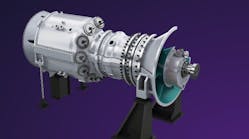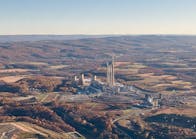Indian aluminum firm reduces GHG intensity by 12% at its largest smelter
Vedanta Aluminium, a business of Vedanta Limited, has reduced GHG intensity at its largest aluminum smelter by around 12% in FY22 over the last fiscal year, while production volume increased by 20%.
The reduction has been achieved through the adoption of a multi-pronged approach to combat climate change. Its climate action initiatives include:
- The launch of India’s first low carbon ‘green’ aluminium ‘Restora’ with a carbon footprint nearly half that of the global threshold of 4 tons of CO2 equivalent per ton of aluminum
- The signing a 380 MW Power Delivery Agreement for renewable energy for its aluminum smelters
- Commissioning of the largest industrial electric fleet in India comprising 27 battery-powered forklifts
- Expansion of its existing carbon sink with 4 lakh more saplings planted
The initiatives have led to energy savings of 23 lakh Giga Joules in the fiscal year 2022.
Rahul Sharma, CEO – Aluminium Business, Vedanta Limited, said, “Being India’s largest producer of aluminum, we firmly believe in our role as climate action stewards while being industry leaders. We have set ambitious targets for ourselves on our road to Net Zero Carbon by 2050, with the first milestone being 25% reduction in GHG emissions intensity by 2030. We have adopted a 360-degree approach to sustainable development, which includes products, processes, technology, policy and partnerships. We believe our actions will help build a net-zero climate-resilient business, while creating virtuous circles of sustainable growth, jobs and opportunities – for us, our stakeholders, the nation and world at large.”
Over the past year, the firm has focused on reducing carbon emissions, adopting renewable energy, improving biodiversity and air, water and waste management. For instance, MoUs were signed to develop ways to use industrial by-products like fly-ash and bauxite-residue.
The firm has committed to reduce GHG emissions intensity by 25% by 2030 over the FY21 baseline. Between 2012 and 2021, Vedanta Aluminium has reduced GHG emissions intensity by 21% while production almost tripled.





